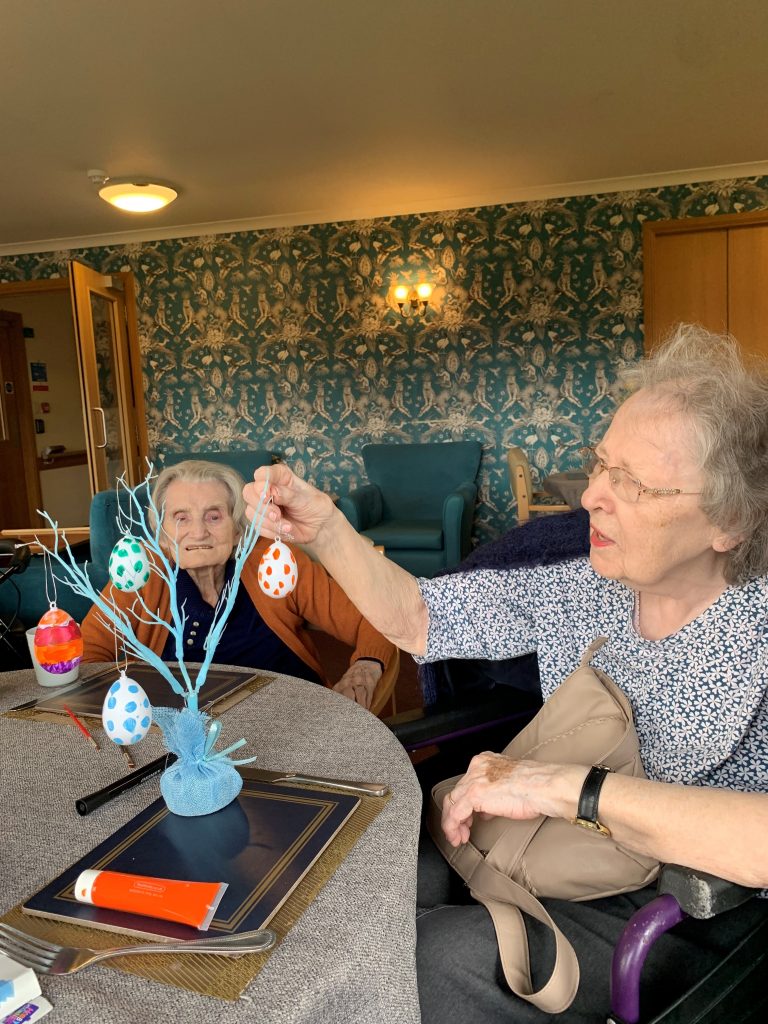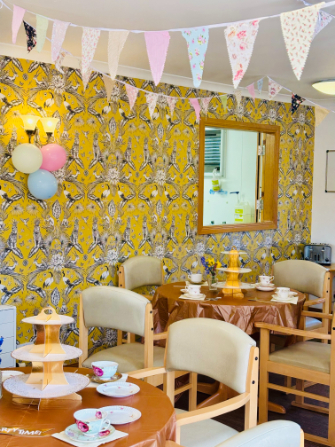How Much Do Care Homes Cost?

With a rise in the average life expectancy across the UK, there is a growing demand for care homes. However, this increased demand has also meant higher care costs, making families concerned about securing a place for their loved ones. Currently, care home fees are at an all-time high, adding to the worries of those seeking full-time care.
In recent years, there have been many established care homes and nursing homes, each offering its unique range of care services and facilities. As there are so many care home types to choose from, it can be daunting for care seekers when trying to find the most suitable care facility for their family member's needs.
In this blog, we will explore the current average weekly cost of care in the UK and discuss the available financial assistance options, including support from the local authority and NHS.
Average Care Home Fees Across the UK
Recent research indicates that the average UK care home fees for residential care typically changes depending on the care type needed. Nursing care tends to be more expensive than residential care due to the increased complexity and specialised nature of the services provided. Several factors influence the pricing of care homes, including their location, the type of care they offer, and the available facilities.
The location of a care home can significantly impact the overall cost across the UK. For instance, care homes situated in high-demand areas like Glasgow and Aberdeen generally come with higher care costs compared to those in more rural settings. It's essential to note that the figures mentioned above represent averages, and the actual care home fees can vary depending on various factors, such as whether they provide all-inclusive services or the level of care.



The Structure of Care Home & Nursing Home Costs
All across the UK, care homes and nursing homes adopt their own fee structures, which are based on various factors. The different costs are structured by the type of care needed, the range of activities and amenities provided, and additional services included which would cause care fees to be higher.
Some will offer a fixed weekly rate, while others adopt a pay-as-you-go system. The specific fee arrangement often depends on the individual care home. We would recommend getting in touch with the care home manager to find out what they require. Also, not all care homes will include the same services in their cost per week. Some care homes include essential services like personal care, accommodation, and meals within their fees. Others may charge additional fees for services such as medical treatments, hair appointments, and social activities.
Respite Care Costs
Respite care is a form of support offered to individuals on a short-term basis, typically catering to those in need of extra assistance following an illness, surgery, or to provide relief for primary caregivers caring for someone at home.
This short-term care option is typically billed on a daily or weekly basis as most individuals will receive respite care from a minimum of two weeks up to six weeks. To ensure the appropriate level of support, a care home must conduct a care needs assessment. The amount someone would pay for care can vary depending on the specific requirements of the person receiving respite care.
Dementia Care Costs
In the UK, there are approximately 900,000 individuals currently living with dementia and this continues to rise. The fees for dementia care homes are somewhat comparable to nursing homes, as the care tends to be more complex, especially with advanced dementia. Many care homes also provide various levels of dementia care, sometimes a care home can only cater to early-stage dementia whereas others can cater to the advanced stages through to end-of-life.
Residential Care Costs
Residential care is the most basic type of care an individual can receive. Usually, the accommodation, meals and personal care costs are covered when somebody receives residential care. It is suitable for individuals who can go about their daily routine independently to a degree, but require some assistance with activities such as washing, dressing or mobility. Residential care generally tends to cost less compared to other care types.
Nursing Care Costs
When considering the average care home fees, nursing care is the most expensive, this is due to the complex care that's required which involves 24-hour monitoring and the provision of medical treatment by registered nurses. The fees associated with nursing care encompass accommodation, medication administration, meals, and medical support services. Individuals receiving nursing care usually depend on continuous, around-the-clock attention from nurses, which naturally leads to a higher cost per week.
Nursing home fees will typically provide a nursing fee range, with the higher range being appropriate for those with high-demanding needs. If you have any questions regarding paying for care in a nursing home and if this is the most appropriate type of care for your family member, get in touch with the care home manager.
What Should Be Included When You Pay Care Home Fees
Establishing a baseline for what is included within care home fees is challenging, as this can completely vary based on the specific services provided by each home. Generally, care home fees are designed to include essentials such as meals, accommodation, personal care, and access to daily activities.
It is essential to invest time into gathering information about a range of care homes and their services then compare them to others in your preferred area. By researching different care homes and how much you would pay for care, you can find the most appropriate care home for your family member, somewhere they can call home.
An All-Inclusive Way of Life
All-inclusive care homes are constantly gaining popularity in the UK due to their 'all-inclusive' approach. The care home costs cover all services provided, including accommodation, meals, medical and personal care, as well as social activities. Residential care, nursing care, respite care and dementia care are the most common types of care offered in an all-inclusive care home.
While the cost of living in an all-inclusive care home is typically higher, it offers peace of mind to care seekers by eliminating concerns about hidden or unexpected charges. As the cost of living continues to rise, managing bills at home can become overwhelming. Residing in an all-inclusive care home ensures that a person receives around-the-clock support without worrying about household chores.
It is recommended to visit and assess each individual nursing home or care home to gain an understanding of their specific fees and what services they offer to determine whether it's suitable.
Who is Responsible for Paying the Cost of Care
The expenses associated with care home and nursing home fees are typically the responsibility of the individuals receiving care, making them self-funders. Despite this, not everyone has the financial means to cover the full amount of weekly care fees. In such cases, individuals who cannot afford care home fees have the option to seek financial assistance from their local authority or through Complex Clinical Care funded by the NHS. To determine eligibility for this support, a financial assessment of a person's savings and assets is conducted.


If you have the financial resources to pay for care independently due to sufficient savings or a private and/or state pension, it is advisable to first speak to a financial advisor. That way, you can gain a clear understanding of your long-term affordability for care and help identify if you will require any financial support in the future such as an equity release or a deferred payment agreement.
Financial Support Services Available
Depending on an individual's specific circumstances, they may be eligible for financial support to help cover their care costs. In such situations, the initial step involves reaching out to the local authority. The local council conducts a financial assessment to determine whether a person's savings and assets fall above or below a particular savings threshold. If an individual is approved for funding, the local authority will contribute towards the cost of the required care.
Individuals with substantial care needs or primary health requirements may be able to qualify for Clinical Complex Care which is funded by the NHS. This type of financial help is exclusively available to those with significant mental or physical needs. The assessment for this focuses solely on the person's care needs to determine if they have a 'primary health need.' A means test will only be carried out to determine if a person should contribute towards their accommodation.
In cases where an individual does not meet the criteria for either local authority or NHS funding, they can explore the option of a deferred payment agreement. This arrangement involves the local authority providing a loan to cover care expenses, with the individual repaying the amount once they sell their assets, typically their home. It's important to note that interest is typically added to these repayments.
It's essential to know that financial support from the local authority or the NHS is not guaranteed, and some care homes or nursing homes may not accept funding support. Therefore, before considering a care home or nursing home, you'll need to enquire whether they accept funding from third parties.
Local Authority Funding
Local authority funding includes financial assistance offered by a local council to aid individuals who are unable to pay for care independently. To determine eligibility for this funding, a financial assessment is conducted, which involves evaluating an individual's financial situation and looking into their income, assets, and savings.
While local authority funding will typically cover personal care costs as well as essential care home services such as accommodation, meals and support, it may not encompass additional services or amenities. Expenses related to personal items, social activities, and supplementary medical treatments may need to be paid for by the individuals themselves. In certain situations, a top-up fee may be necessary. This would be appropriate when the local authority funding allocation falls short of the chosen care home's cost, requiring the individual or a family member to cover the remaining amount.
Self-Funding Your Own Care Home Fees
Some individuals may find themselves in a situation where they can independently cover the expenses of their care without seeking financial help from a local authority or council. In such cases, they are considered self-funders and are responsible for bearing all the costs of their care, which includes both personal and medical care.
Whether an individual is considering a nursing home, residential care facility, or an all-inclusive care home, you'll need to assess whether being a self-funder is sustainable in the long run. It's also wise to explore alternative options if self-funding becomes unfeasible such as funding your local authority. Keep in mind that the cost of care can vary depending on the type of care, location, and amenities provided, so it's important to consider these factors when contemplating paying your own care costs.
Complex Clinical Care
Complex Clinical Care refers to the financial support provided by the NHS to cover the care costs of individuals with significant health needs, typically those dealing with terminal illnesses or long-term health conditions.
To determine eligibility for this funding, a comprehensive assessment is conducted by a team of healthcare professionals. This assessment thoroughly evaluates an individual's current mental and physical condition and considers whether their care requirements are complex, unpredictable, or intensive.
A checklist tool is used by a registered nurse to assess various areas, including:
- Respiratory health
- Nutritional needs
- Continence management
- Skincare
- Mobility
- Communication abilities
- Psychological and emotional well-being
- Cognitive functions
- Behaviour
- Altered states of consciousness
- Medications and drug therapies
If the healthcare team finds that the individual falls into the categories of 'priority,' 'severe,' or 'high' in one or more of these areas, they are likely to qualify for Complex Clinical Care. A means test is only carried out to cover accommodation costs, while all care costs are covered.



Receive First-Class Care in a Homely Environment at Struan Lodge Care Home
Struan Lodge care home is located in a quiet cul-de-sac in Balgreen, Edinburgh. We are delighted to offer our residents a cosy, warm and inviting place they can call home. We can accommodate 30 residents, and each person can enjoy a fulfilling lifestyle where they can fill their days with the things they love doing most.
We have a team of care professionals who go above and beyond to ensure residents feel comfortable and content 24 hours a day, 7 days a week. Our first-class residential care, respite care, dementia care, nursing care and palliative care ensure residents receive the highest standards of support whilst they reside with us.
By adopting a person-centred approach to care, we are able to create individual care plans alongside the resident and their family members. This outlines their exact needs and preferences and is adaptable based on how the individual develops, enabling our team to provide the most tailored care possible.
As we offer an all-inclusive way of life, all of our on-site facilities and amenities are included in the costs per week. Residentials will have access to our daily activities programme, garden facilities, quiet area and gardens. Whatever it is that you enjoy, we strive to make is possible at Struan Lodge.
Enquire About Our Care Home in Edinburgh
If you have any queries about how you should be paying for care, our care home costs, or anything else, get in touch with a member of our friendly team by calling 0131 337 7477 or emailing manager@struanlodgecare.com. We look forward to hearing from you.





